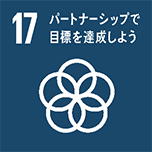Professor
Ph.D. (Japanese studies; concentration in traditional Japanese theatre and gender studies)(SOAS, University of London)
M.A. (Gender studies)
M.A. (Japanese Studies; concentration in Japanese literature and linguistics)
Office’╝ÜRoom 615
E-mail’╝Üpetkova_galia@eikei.ac.jp
Office Hours’╝ÜPlease make an appointment by email or through Teams.
Research Content’╝ÜSee bottom of page
Academics
AcademicsFaculty Information
PETKOVA Galia

Profile
Specialising in Japanese and Asian traditional performing arts, cross-cultural studies, and gender studies.
Message
University years can be the best time of your life. It is entirely up to you what you make of it. You will make friends for life; you will grow intellectually and emotionally. How much you learn depends on you. Your teachers are here to help you and to stimulate you to learn, not to force you. Be curious ŌĆō everything is interesting if you pay close enough attention. Use these four years well and you will gain both solid knowledge and confidence. But, most of all, learn to think critically, to analyse and understand human behaviour and society ŌĆō this is the purpose of a university education. And spend time studying abroad. For me, this was my most constructive experience.
Introduction of the Research
My scholarly interests include traditional performing arts in Asia, focusing on Japan, and gender studies. My recent research projects focus on regional performing arts in Japan such as kagura and various dances, and the female versions of all-male traditional performing arts and kabuki masculine heroes in Japanese culture.
Research Themes
Cultural representation of gender and the body
Construction of idea(l)s of femininity and masculinity onstage
Interweaving of performance, power, gender, and identity
Traditional performing arts in Asia ŌĆō mutual influences and distinctive features, role in contemporary society
Women in performance, representations of femininity
Gender construction in kabuki
Local performing arts in Japan ŌĆō issues of identity and gender
Shared narratives in Asia
Lion dances in Asia and Asian diaspora around the world
Details of the Research
As a Japanese studies specialist with a deep interest in every aspect of premodern Japanese society and culture explored within the context of Asia and the world, my research is highly interdisciplinary and comparative. I mostly work in the field of performance studies and gender, examining the way in which societies construct, maintain, enforce, transform and subvert through cultural re/presentation their ideas of gender and gender relations, and especially their ideals of masculinity and femininity. My general research focus has its theoretical basis in contemporary critical thought, more specifically in the modern conceptualisations of the body, power, gender, and performance. Other key terms are the notions of cultural ideology, cultural production, identity, embodiment, hegemony, performativity and citationality of gender.
My recent main research topics are:
- Production of gender on the stage of Japanese traditional performing arts, from ancient to modern times, as both reflecting societal perceptions and ideals of gender and influencing those. My particular focus has been the exploration of gender and body construction in Edo-period kabuki theatre, which I view as essential for understanding gender construction in premodern Japan, and its influence on contemporary Japanese concepts of ŌĆ£idealŌĆØ traditional femininity and masculinity.
- Conception of female versions of popular all-male performing arts and masculine heroes in the predominantly male traditional performance culture in Japan. There versions include genres such as onna sarugaku ŌĆ£female sarugakuŌĆØ, onna bunraku ŌĆ£female bunrakuŌĆØ, onna-zumo ŌĆ£female sumoŌĆØ, etc., and kabuki productions such as Onna Narukami ŌĆ£Female NarukamiŌĆØ, Onna Shibaraku ŌĆ£Female ShibarakuŌĆØ, etc.
- Local performing arts in Japan (e.g. nenbutsu ky├┤gen, rokusai nenbutsu, Kurokawa noh, n├┤son kabuki, kodomo kabuki, sato kagura, dengaku,etc.) as cultural heritage, and the role of performance in regional communities in terms of gender, identity, policymaking, promotion of local culture and products, food, and tourism.
List of Papers
- ŌĆ£Projecting Classicism in Classical Kabuki Theatre ŌĆō A Gender PerspectiveŌĆØ (2020).ŃĆÄÕÅżÕģĖŃü«µ£¬µØźÕŁ” : Projecting ClassicismŃĆÅ, ĶŹÆµ£©µĄ®ĶŹÆńĘ©ŃĆüµØ▒õ║¼’╝ܵ¢ćÕŁ”ķĆÜõ┐ĪŃĆüpp. 811-835 (invited)ŃĆĆ’╝łSee ŌĆØOther InformationŌĆØ for more details.’╝ē
- ŌĆ£Consumption, Adolescent Women (Sho╠äjo), and Cute Pop Culture in JapanŌĆØ (2016). Japanese Studies 25th Anniversary Conference Papers Collection, Sofia: Sofia University Press pp.291-308 (invited)
- ŌĆ£Onna Mono: The ŌĆśFemale PresenceŌĆÖ on the Stage of the All-Male Traditional Japanese TheatreŌĆØ (2015). Asian Theatre Journal, Vol. 32 (2) (Special Issue Section ŌĆ£Women in Asian TheatreŌĆØ), Honolulu: University of Hawaii Press, pp.387-415 (peer-reviewed) (µ¤╗Ķ¬ŁŃüéŃéŖ)
- ŌĆ£Onna and Onnagata: Representation of Women and the Female Body in Early KabukiŌĆØ (2013). Bulgaria-Japan-The World. Japanese Studies 20th Anniversary Conference Papers Collection, Sofia: Sofia University Press, pp.289ŌĆō298 (invited)
- ŌĆ£Gender and Body Construction in Edo-period KabukiŌĆØ (2009). Core Ethics, Vol. 5, Kyoto: Ritsumeikan University Graduate School of Core Ethics and Frontier Sciences, pp.71-87 (peer-reviewed) (µ¤╗Ķ¬ŁŃüéŃéŖ)
Books and Other Publications
- Female Deities, Dancers and Impersonators: from Mythology to Kabuki Theatre (2019). Sofia: HAINI Publishing House
- Japan: History and Traditional Culture (2008). Sofia: University of Library Studies and Information Technologies Publishing House
- History of Japanese Literature (2008). Sofia: University of Library Studies and Information Technologies Publishing House
- Book chapter ŌĆ£Kabuki: Performance of Gendered BodiesŌĆØ (2020). In Irina Holca & Carmen T─āma╚Ö, eds., Forms of the Body in Contemporary Japanese Society, Culture, and Literature. Lanham, MD: Lexington Books, pp.49-72
Key Words of the Research
Japanese studies, Asian studies, traditional performing arts, performance studies, gender, cultural representation, the body, power relations, identity, cultural heritage





 ’╝ł232KB’╝ē
’╝ł232KB’╝ē